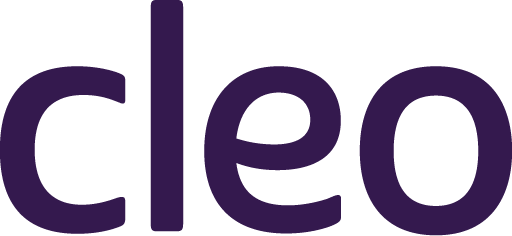In the early days at Cleo, we clung closely to the premise that we should do things that don’t scale for as long as possible. The first iteration of the Cleo experience involved a multidisciplinary family care team, at your service. The team consisted of a marriage and family therapist, holistic midwife, lactation consultant, career coach, and yours truly.
We learned critical lessons that have brought us to our current care model featuring 360-degree family-centered care with medical experts in the background, not the foreground. Our care model was intentionally designed to counterbalance the overmedicalization of family health that often occurs in our current healthcare system, which we believe is fundamentally failing families.
Families want relationships, not just answers.
Answers are a dime a dozen—query Google, Facebook, or the person next to you in the grocery store checkout line and you’ll get one (or several). Whether they are expecting a baby or they already have young children, we learned that families want to feel understood, and when they do encounter challenges, that they’re handled individually. This takes getting to know them and being with them through the little moments, not just when they ask for help.
To build these relationships, we looked to successful public health programs and the community health worker movement, in which trained and trusted individuals follow families over time. This model is seen in widely lauded US-based interventions such as Nurse-Family Partnership and in transformative global health organizations like Partners in Health. And with that, we created the concept of the Cleo Guide.
Our Guides are experts trained to provide regionalized, longitudinal support to families. Cleo Guides are the eyes and ears of our team and at the heart of our mission in the care and comfort they provide. With some help from technology, we’ve achieved remarkable, scalable, and reproducible outcomes from this model.
Parents already know how to parent, but they need support.
Our earliest version of Cleo also taught us that in order to not just disrupt, but truly transform family health, we would need to center parents, their lived experiences, and their intuition. Ninety percent of the work of a Cleo Guide consists not of imparting knowledge onto parents but empowering them to listen to what they already know.
When we lived in intergenerational communities, with grandparents and cousins next door, this process of honing parents’ confidence and intuition was a part of life. Our model attempts to replicate that community of caregivers that lifts and supports parents along their journey. In taking this approach, the Cleo team honors every instance that our members share with us—moments of grief and loss, moments of joy, successes, failures, and everything in between.
We’ve laid a strong foundation to deliver a dramatically different kind of clinical care, with parents in the driver’s seat accompanied by trusted Guides.
Dr. Chitra Akileswaran, Co-founder and Chief Medical Officer
Cleo’s perspective on clinical care delivery is not to interfere with the primary patient-provider relationship of our members with their obstetricians, family physicians, midwives, nurse practitioners, or pediatricians, but to fill in the cracks and crevices where the healthcare system falls short.
This is a far different approach from being able to talk to a therapist day or night on demand—but our approach identifies at-risk members earlier, has higher levels of treatment adherence, and results in more sustained outcomes than a single, transactional clinical encounter.
We’ve developed a suite of Clinical Programs—specialized pathways of clinical support that hit on areas sorely lacking attention by our healthcare system. Our programs to date focus on perinatal mental health, birth equity, pediatric neurodiversity, and care for premature infants. Each of these programs has distinct eligibility criteria, internal referral pathways to our Clinical Team, and a structured set of interventions with measurable outcomes that tie directly to ROI.
We launched our Perinatal Mental Health Program last year, finding a high degree of uptake (35%) upon in-app screening. Upon completion of the 6-week program in which individuals are supported with evidence-based interventions and referrals, we have seen 75% improvement in symptomology and 55% connect to higher-level mental healthcare.
We look forward to expanding our clinical competencies in key areas, and in doing so, demonstrate that doctors and nurses, while critical to our health and wellness, are not the only ones among us who can heal. We can in fact heal one another.
